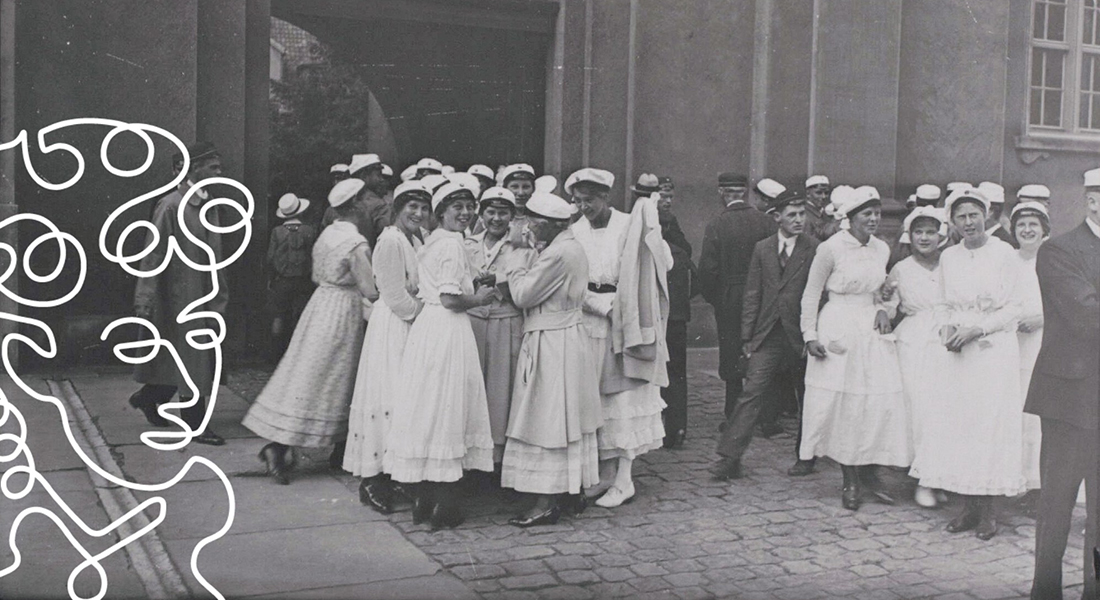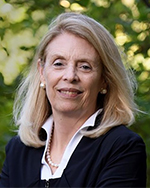A Matter of Justice: Women’s Access to Higher Education in Denmark and in the International Context - Past, Present, and Future
Two-day conference.

In celebration of the 150th anniversary of women’s access to higher education in Denmark, this conference delves into the history of women’s century-long struggle for the right to attend universities. The granting of general access to the University of Copenhagen in 1875 marked a pivotal moment - not only for Denmark but also for the rest of Europe, where most women were still denied this fundamental right.
However, the milestone achieved in 1875 was the result of tireless efforts by many women who advocated and fought for this right, both in Denmark and abroad. During this conference, we will spotlight some of the most significant milestones in this long and arduous history, spanning Denmark, Europe, and beyond.
Reflecting on this history not only deepens our understanding of the progress achieved but also prompts us to consider the challenges that remain: Have the expectations been met? What barriers do women still encounter when accessing higher education? How and why does the university system continue to fall short for women in some areas?
We invite you to join us in exploring these and other pressing questions with renowned international experts during this two-day conference.
The conference will take place on 23-24 October 2025, and all the presentations will be in English.
On the second day, 24 October, there will also be a policy event following the academic programme. This policy event will be partly in English and partly in Danish. Read more about the policy event.
Registration
The events are free and open to everyone. The deadline for registration was 20 October 2025.
Programme
| 08:45-09:00 | Arrival, coffee and registration |
| 09:00-09:05 |
Welcome: Kirsten Busch Nielsen, Dean, Faculty of Humanities
|
|
9:05-10:35 |
Session 1: Women’s Access to Universities in Denmark: History, Achievements, and Challenges
|
| 10:35-11:00 | Coffee break |
|
11:00-12:30 |
Session 1: Women’s Access to Universities in Denmark: History, Achievements, and Challenges (continued)
|
| 12:30-13:45 | Lunch |
|
13:45-15:15 |
Session 2: Women’s access to universities in Europe and beyond
|
| 15:15-15:30 | Coffee break |
|
15:30-17:00 |
Session 2: Women’s access to universities in Europe and beyond (continued)
|
|
09:00-10:30 |
Session 3: Today’s challenges to women’s access to higher education in a globalized world
|
| 10:30-11:00 | Coffee break |
| 11:00-12:00 | Session 3: Today’s challenges to women’s access to higher education in a globalized world (continued)
|
| 12:00-13:00 | Lunch |
| 13:00-17:00 | Policy event (requires separate registration) |
Londa Schiebinger: Gendered Innovations – How to Fix the Knowledge
Governments and universities have taken three approaches to gender equity over the past several decades: “Fix the Numbers,” “Fix the Institutions,” and “Fix the Knowledge” or “gendered innovations.” My talk focuses on this third approach - how we got here and what new topics, discoveries, and innovations we get if we integrate sex, gender, and intersectional analysis into research design from the very beginning. I will conclude with policy strategies for the three pillars of science infrastructure - funding agencies, peer-reviewed journals, and universities - aimed at successfully fixing the knowledge.
Bio

Londa Schiebinger is the John L. Hinds Professor of History of Science in the History Department at Stanford University and Director of the EU/US Gendered Innovations in Science, Health & Medicine, Engineering, and Environment Project. As a distinguished academic, Schiebinger has been awarded numerous prizes and honorary doctorates. A pioneer in the field of gendered innovation, she has earned international acclaim for advancing research at the highest political and scientific levels.
Map of South Campus
View directions.
View on map of the Faculty of Humanities - South Campus.
View map of South Campus (pdf).
